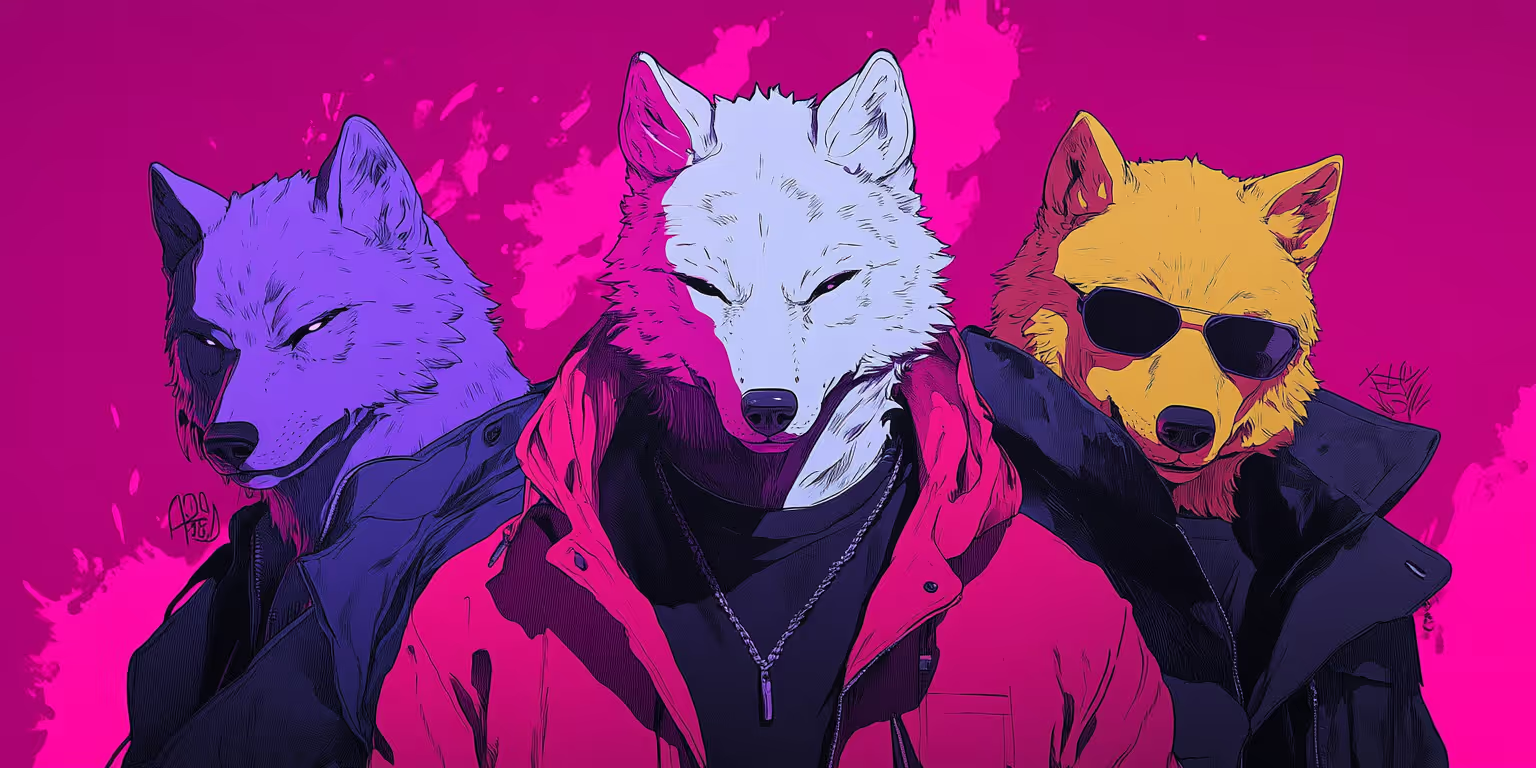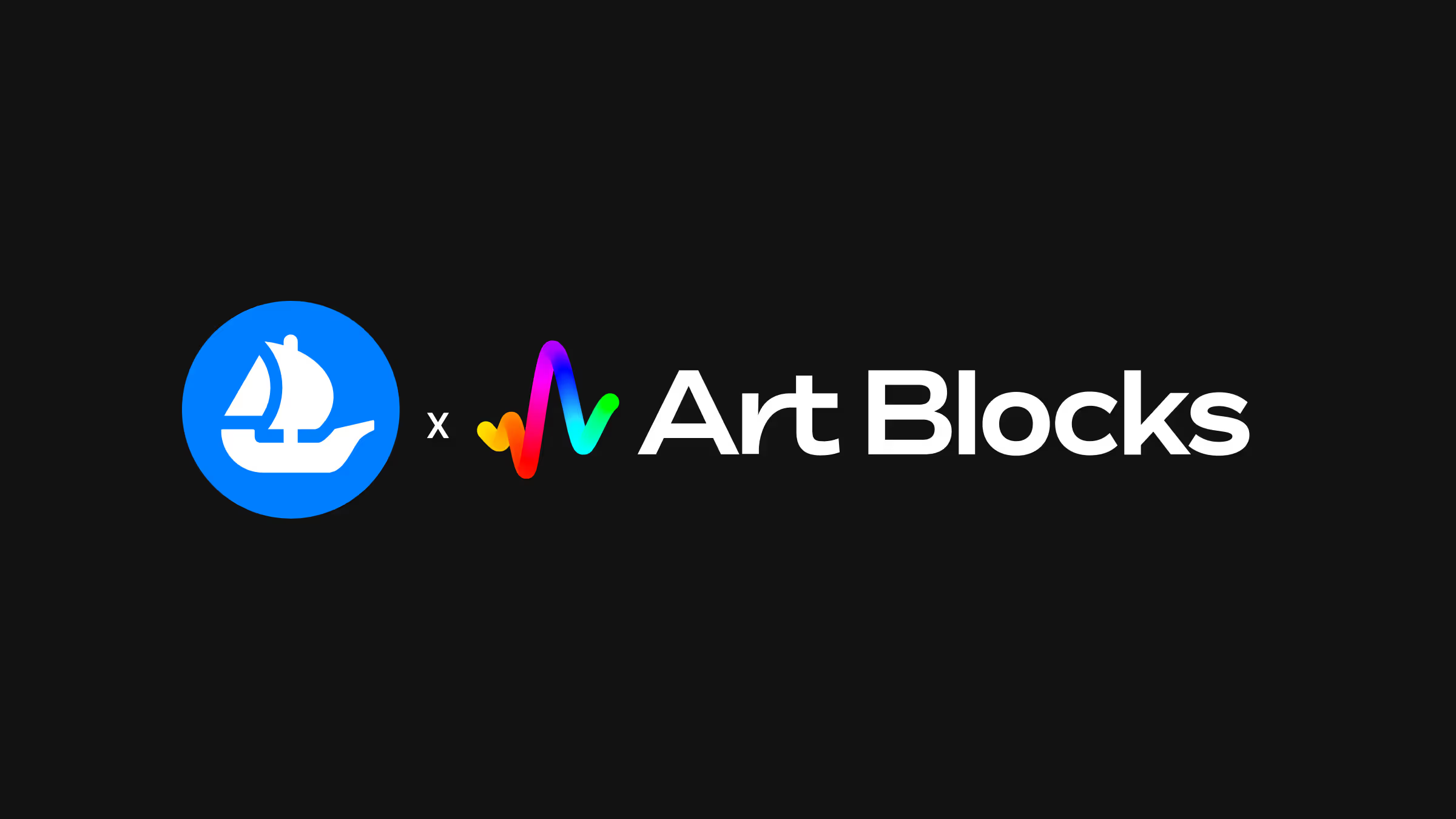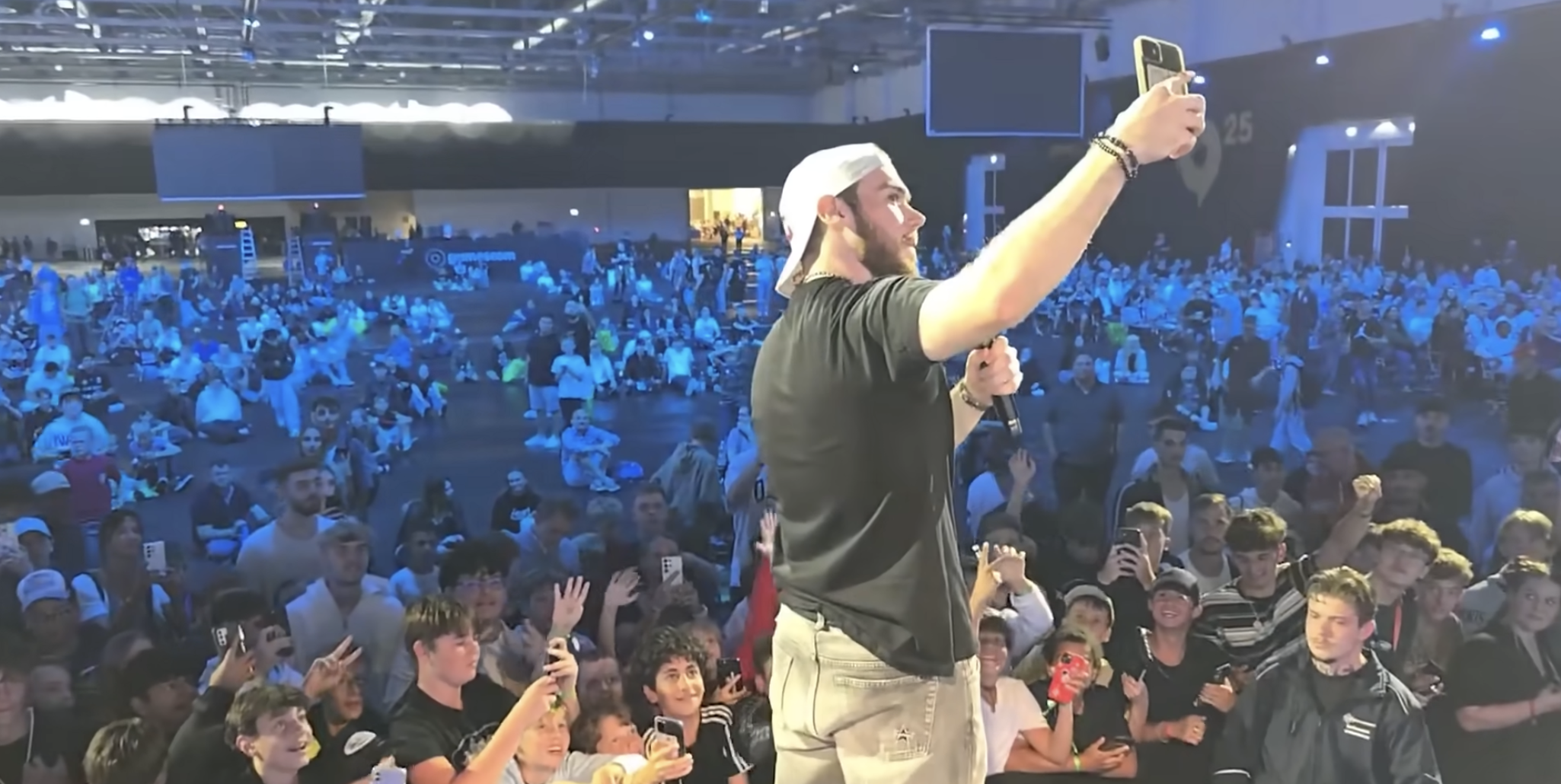As a co-founder of Wolves DAO and CMO at Farcade, Sam Steffanina is helping shape the future of player-owned economies. Whether he’s hosting founder-focused Twitter Spaces or pushing the boundaries of what no-code tools can unlock, Sam’s at the center of the conversation.
We sat down to talk about Wolves DAO’s unique model, the work Farcade is doing to remove the friction from game creation, and why web3 gaming is inevitable.

Note: This transcript has been edited for length and clarity.
OpenSea: How did you first become interested in gaming and digital communities?
Sam Steffanina: My background started really young as a die-hard World of Warcraft addicted teenager. I was homeschooled and spent entirely too much time on it. Eventually, my brother and I found some success on YouTube early on. His name is Matt Steffanina. He was a small-town dancer from the middle of nowhere, and we started filming dance tutorials.
We used to have to spend so much to buy DVDs or fly to New York and LA to take classes, because nobody in Virginia really taught hip hop. We built the biggest dance YouTube channel for about five years with 15 million subscribers and about 3 million on a secondary channel. We spun out to other social media, too.
Then I got pretty sick for a few years and couldn’t work. When I came back, dance wasn’t what I wanted to do anymore. I went back to my gaming roots, discovered blockchain gaming through an Alex Becker video, and instantly knew it made sense. I spent four months learning crypto, eventually met Payton from Wolves DAO, and co-founded the DAO as we evolved the concept together.
OpenSea: What an interesting story. I think all the time about how Vitalik created Ethereum after losing everything in World of Warcraft. So whenever people ask about obvious use cases for blockchain, I always say gaming.
Sam Steffanina: I love it. That’s my love language—people acknowledging the real value proposition instead of just talking about token prices.
OpenSea: It can be hard to explain this world to people outside of it, but once you tie it to things like gaming or immutable public records, it clicks.
Sam Steffanina: Exactly. The one that got my mom was Western Union. She hated having to use it to send money internationally. I told her blockchain could do it in seconds, and now she’s an XRP maxi.
OpenSea: Love it. Slowly infiltrating the boomers!
Sam Steffanina: Chipping away.
OpenSea: You mentioned growing up homeschooled and gaming. Was that isolating, or did you have outside influences?
Sam Steffanina: It was actually an alternative form of homeschooling called “unschooling.” The high-level concept is that you design your own curriculum as the kid, not as the adult.
It made me super adaptable and comfortable navigating things solo, though I had an awkward couple of years in between. My mom worked on cruise ships, so I traveled with her, made friends globally, and grew up very used to trusting people I knew online.
It did eventually lead me into cooking, and then cooking in restaurants led me to meet a bunch of friends with whom I developed my social skills. I had a little bit of an awkward period for two or three years where I didn't really know which direction I wanted to go into. But it's made me super adaptable. Everything is really dynamic, and it’s not scary for me to pick up something new because I've always done it.
Fast forward to web3, and I suddenly realized: I understand digital economies, I have friends all over the internet. I trust people based on what they say and the way they present themselves online, which is hard for a lot of people.
OpenSea: So what was the moment or project that got you involved in web3?
Sam Steffanina: It was late 2021, during the bull run. I minted a Season 2 Neo Tokyo and believed in the vision, even though I knew a lot of it was years away. I lost some money, but I found the real value: the people. Wolves DAO came out of that. I met business partners and friends I still work with today.
OpenSea: Did you find Wolves DAO immediately?
Sam Steffanina: Not exactly. I had an awkward “web3 puberty” phase first. I ended up joining what was then called Cyberwolves, a derivative community from Payton’s YouTube. A nurse in LA who knew my brother’s YouTube channel reached out.
When I joined the voice chat, everyone was excited. I instantly recognized they had something special but needed help packaging it. Crypto content in 2021 was kind of terrible. I knew from experience that early content markets are golden opportunities, so I started helping.

OpenSea: Wolves DAO has stayed very community-focused. How have you kept that spirit alive?
Sam Steffanina: Exclusivity has become core to our identity. There’s no NFT to buy; it’s 300 members only, by application. It creates commitment.
We constantly look for ways to add value. We’ve done Twitter Spaces, virtual events, and now live events. We just had a five-day event in San Francisco for GDC.
We’re now building a companion app that gives holders alerts, like when an unlock is coming up for a token they hold, or when they’re eligible for an NFT mint. It’s what we wish existed, so we’re building it.
OpenSea: I love that it’s organic and built by the people in the group. How would you describe the mission of Wolves DAO to someone who was totally new to the space?
Sam Steffanina: Our founder, Payton, would say it’s “kaizen”—continuous improvement, treat each other like family. We believe in disagreement (“iron sharpens iron”), and when it’s productive, it makes everyone better. My personal belief is that everything I do now is laying the groundwork for finding the next 10 or 20 people that I'm going to work with for the rest of my career.
OpenSea: How do you balance creating content with your work with Farcade, Wolves DAO, with all the things that you have going on?
Sam Steffanina: The live shows keep me honest, which is nice because they're live and happen every single week, twice a week. I’ve realized I’m very creative but not very analytical. I think it's about finding ways that I can have bursts of creativity that are hyperproductive and touch all the different things that I need to touch from my own personal brand, the Farcade brand, the Wolves DAO brand…
I’m trying to learn to use AI better to enhance my output and streamline the admin side. It's really hard, especially when you add more and more brands to the stack. It becomes more and more difficult to maintain everything.
.avif)
OpenSea: How is AI playing a role in your work now?
Sam Steffanina: It’s everywhere. We have an AI bot that reviews tons of data and is putting out insights on Twitter and other places. The Wolves DAO companion app, WOOF AI, is going to have some AI in there as well to send people updates with Farcade. AI is the backbone of the entire business. So we're allowing people to basically no code video games and build them themselves which is really really exciting. I say we've removed about 98% of the friction there. There's about 2% left but that 2% is really hard to get rid of.
OpenSea: Many traditional gamers still aren’t onboarded into web3 gaming. What do you think their biggest misconception is?
Sam Steffanina: The misconception is that people in web3 are scammers. Like anything, that black-and-white thinking misses the nuance.
Games like MapleStory are showing the right model: they have a successful business, and they recognize that blockchain can enhance player experience. I’m bullish on practical implementations.
Gamers want to find rare items that are worth real value, and web3 makes that possible. We just need more examples of “net positive” experiences that don’t feel predatory.
OpenSea: Thanks so much.
Sam Steffanina: You too. Bye!




.avif)

.png)


.png)
.png)
.png)
.png)
.png)